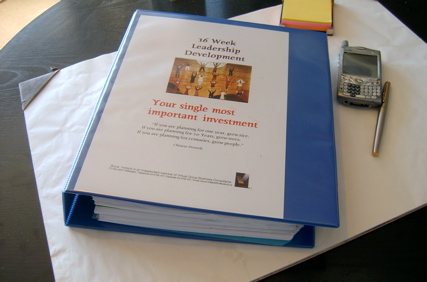
 |
| I write regular Strategic Snippets because I care about the success of your business. If you care about the success of someone else's business click "Send this page to a friend". Ask them to let me know that you were involved. |
Contact
Bruce Holland
| mob+6421 620 456 |
| Bruce.Holland@virtual.co.nz |
 |
Staff Intimacy (BUZZ)
In my job I go into lots of different organisations. Some are buzzing. Others are dead. Mostly the difference is due to the senior management and some remarkably simple things they do (or don't do).
In the ones that buzz, managers have managed to promote a profound sense of belonging and psychic ownership. It's an intimate relationship, so close, employees never doubt that the organisation, its leaders and the other people with whom they work care about them personally and will stand by them through thick and thin as long as they hold up their end of the bargain.
Most of my work is with large organisations like the Auditor General, Department of Prime Minister, MSD, CYF, DOC and ANZ National Bank. Obviously the ability to create deep intimacy has something to do with size. There is generally an inverse correlation between the number of people who work for a company and the strength of their emotional ties to it, however, even in the largest organisations some managers create buzz.
Where there is a buzz. There is excitement, anticipation, a feeling of movement, a sense of purpose and direction, of going somewhere. It happens when people find themselves totally in sync with their sector, with the world around them, and with each other. Everything just seems to click.
Intimate relationships with staff are based on personal contact, one-on-one interactions and mutual commitment to deliver on promises. These relationships develop a sense of community within the people of the organisation (and usually with their customers and suppliers also). And organisations through integrity, professionalism and the direct, human connection find themselves in possession of one of the most powerful business tools in the world: A Culture of Intimacy.
So what do they do?
It's not very difficult, they just see their people as human beings.
- First they spend time with people. They know that the only way to build a relationship is to spend time. If you have no direct contact with people, it is extremely unlikely they will feel the intense, emotional attachment to the business seen in close-knit organisations where everybody spends time together, has important experiences together and knows what's going on in one another's lives.
- These managers listen far more than they talk. They find ways to listen at a deeper than normal level. They know that what they say is far less important than what they do. This quiet supportive behaviour builds trust and people feel valued.
- They have high expectations. They expect their people to do great things and have great ideas and they are seldom disappointed.
- They talk about deeper things. They know we all need to be part of something bigger than ourselves. They articulate, demonstrate and imbue the organisation with a higher purpose. The higher purpose makes the work people do meaningful. They continually remind people how their contribution matters and why they should care about giving their best effort.
- They remind people in unexpected ways how much the organisation cares about them. The crucial word is "unexpected." They go out of their way to make sure the message gets through, either by doing what most managers wouldn't dream of doing or by using one of the standard tools in an unusual way.
- They build collegiality. This refers to feelings that employees have toward one another, the mutual trust and respect they feel, the enjoyment they get out of spending time together, their willingness to work through any conflicts that might arise, their collective pride in what they do and their collective commitment to doing it well.
The solution

Although this stuff is simple many managers don't do it. We all get into self-repeating patterns of behaviour. Even when they don't work these patterns drive our behaviour. To break out requires time. Time to become conscious of the unhelpful patterns, time to develop an intellectual understanding of better approaches and time to practise those behaviours long enough for them to become new and more positive self-repeating patterns.
After many trials with different approaches I have developed a Irresistible Leadership Program that has several innovative features, including:
- Although the development spans 16 weeks (long enough to change even deep-seated habits), because it is delivered in 10 half day modules it requires only 5 days actual time off work.
- It is designed to allow time to eliminate bad habits and adopt good habits.
- It repeats and repeats key messages until they become the accepted way of thinking.
- It is based on peer-to-peer learning techniques so participants learn as much from each other as they do from the facilitator.
- It requires participants to practice the learnings in between workshops on actual current problems; in this way it's no longer theory; it's real.
- Learning is tailored to your specific needs by you selecting content from over 100 areas of learning. For details see....
- It asks for feedback from direct reports of the participants and their managers about whether or not the changes are occurring.
Here's my challenge!!
Take the "buzz test". As soon as you've finished reading this, give yourself 10 minutes to walk around and just be aware of the level of buzz. If it's are not as high as you'd like, give me a call. Perhaps you need the Irresistible Leadership Program.
Regards
Bruce.
Bruce Holland
Helps large organisations be focussed, fast and flexible. Places where people have more meaning, depth and connection.
Expert in Strategy, Structure, Culture and Leadership Development.
One of NZ's most experienced change agents.
Liberating the Human Spirit at Work


